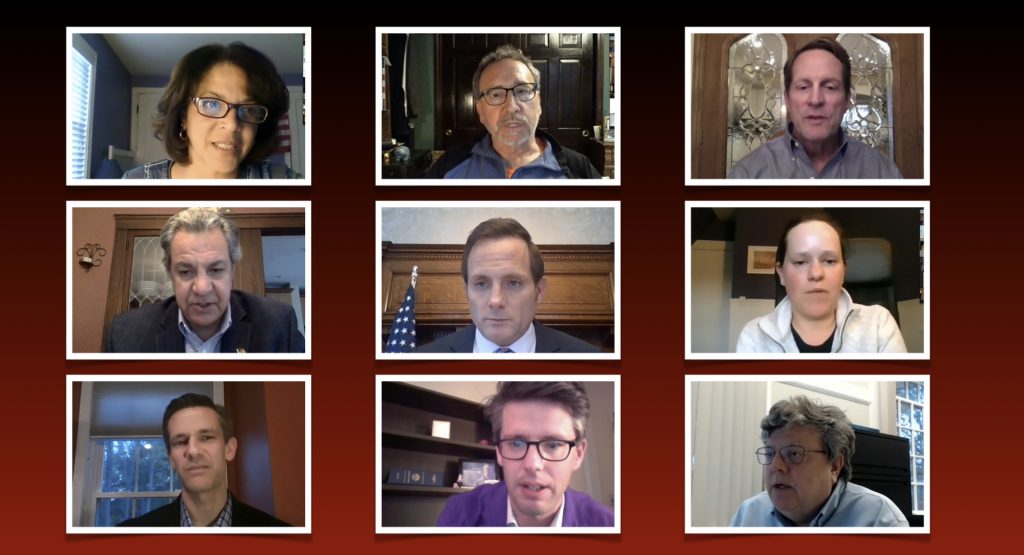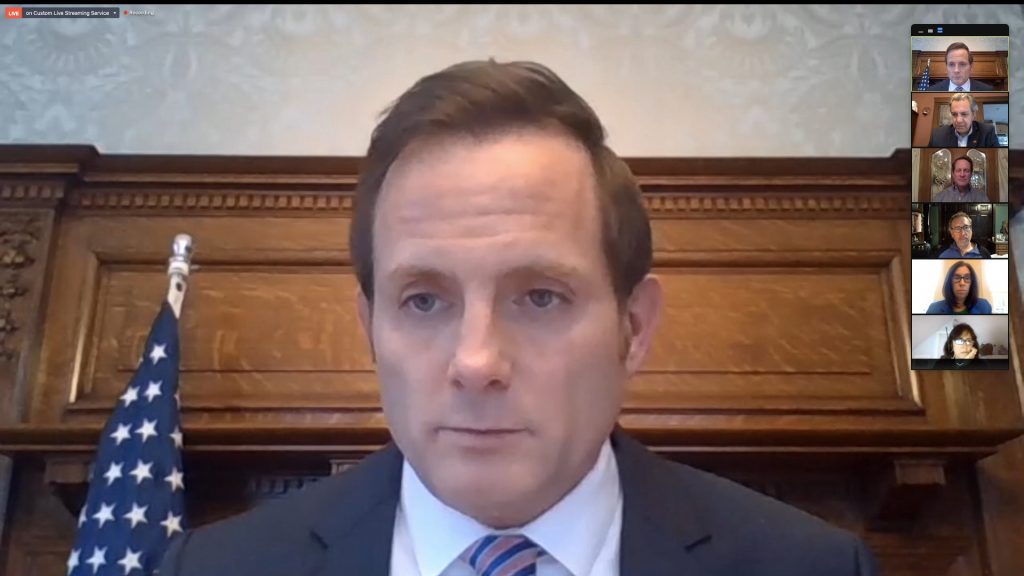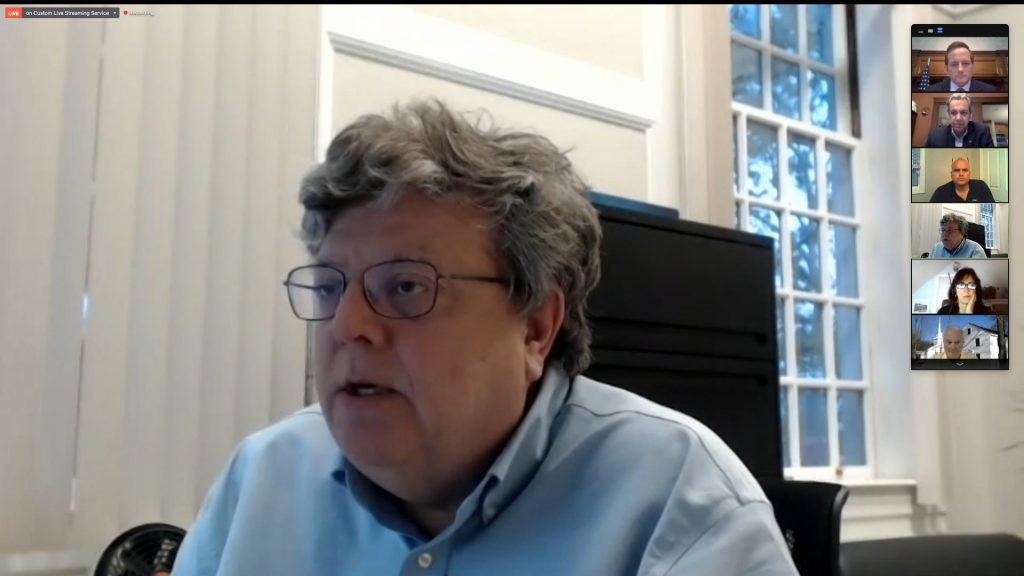
All five members of the Select Board attended a virtual regional summit meeting on Tuesday, May 5. The summit, attended by representatives of Wakefield, Stoneham, Lynnfield, Saugus, Melrose, and Reading, had the goal of disseminating information on various subjects as well as sharing best practices for the continuing COVID-19 situation.

After introductions, Wakefield Town Council chair Edward Dombroski began the discussion asking about the use of open spaces and what criteria the towns will be used to determine when to reopen these spaces. This led talks as to what might occur with summer programming. While most agreed that no decisions could be made regarding programs until there is more direction from the state, Stoneham Select Board vice-chair Raymie Parker shared regarding summer camp, “Parent comfort level is not there yet.” She also believes that some of the decisions will be based on when parents begin going back to work.
Considerable discussion centered around the topic of helping local businesses recover. Melrose has established an economic development task force to help businesses determine how to re-open. Saugus has been in talks with restaurants such as the Kowloon regarding allowing open-air seating to increase the number of patrons while still creating physical distancing. Reading Town Manager Robert LeLacheur said that Economic Development Director Erin Schaeffer has been working with the Chamber of Commerce to develop similar ideas. Schaeffer has also been developing a worksheet for businesses to use to get prepared for re-opening.

Significant time was given to discussion on changing budgets, especially for Fiscal Year 2021, given predictions from Senator Jason Lewis that state revenues could be down 13 to 18 percent. This likely will affect state aid to municipalities. LeLacheur expressed less concern over local revenues. “Proposition 2 1/2 has for many years constrained us, now it is protecting us.” He shared. LeLacheur also spoke of cash flow problems as residents may delay paying their tax bills. “It is not a revenue problem, but a timing of revenue problem,” LeLacheur stated.
Other issues such as the potential benefits of regionalization, access to COVID-19 testing, town meetings, public hearings, and maintaining a connection with residents were also touched upon. Most proclaimed the summit a success and determined to continue the process in the future.
The summit concluded at 8:55 pm.
